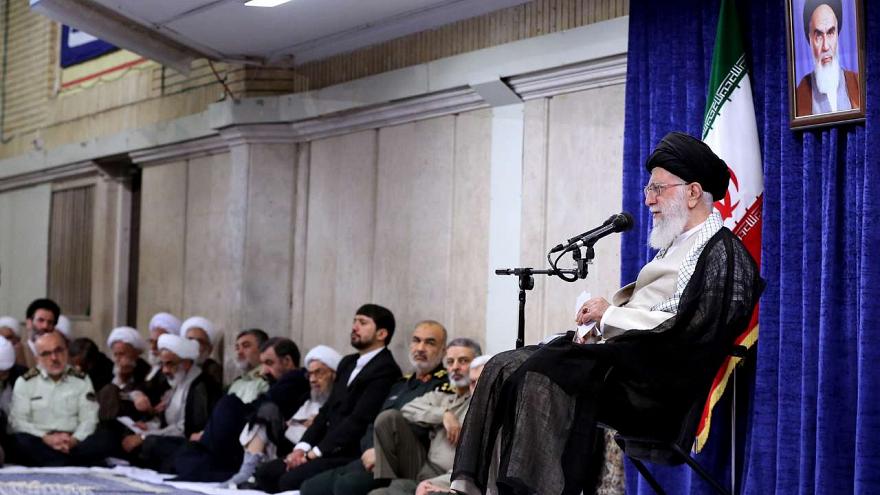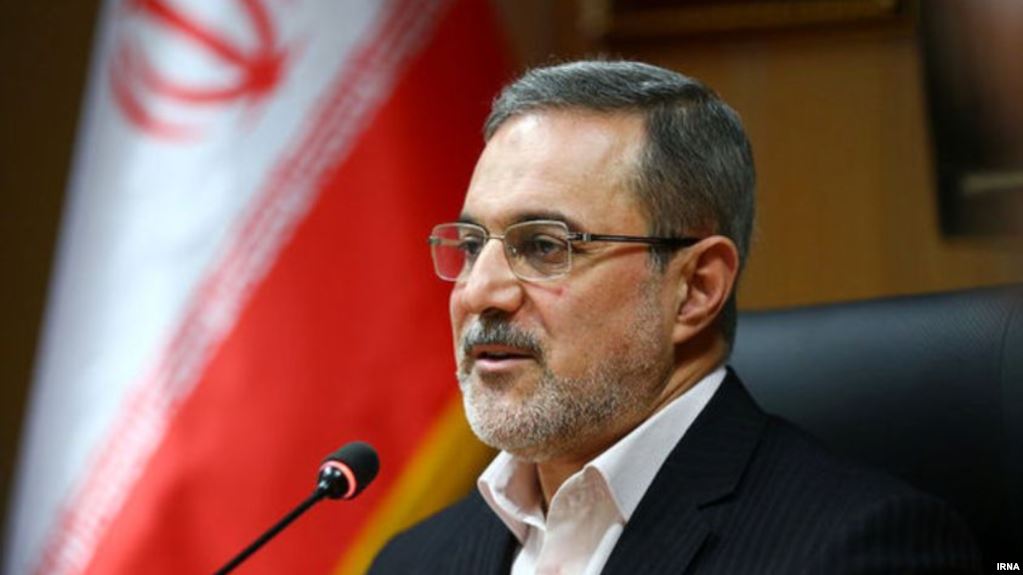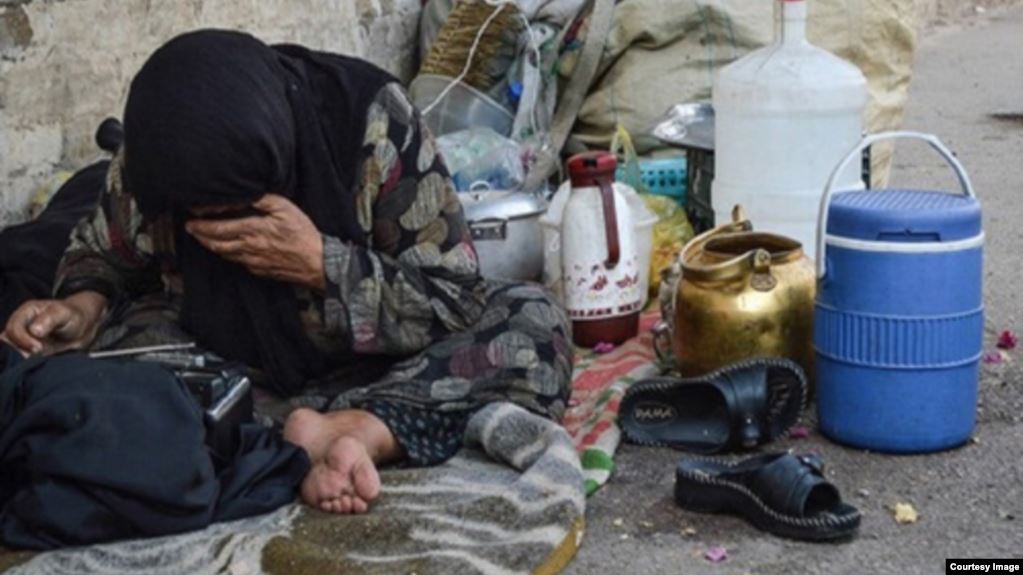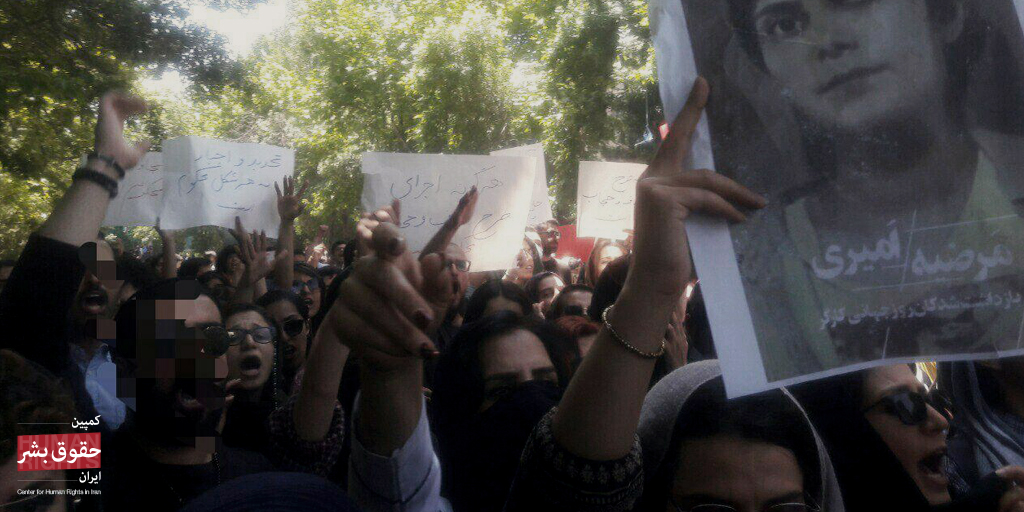
Consequences of the pressure imposed on exhausted people
The editorial of Ebtekar points to the recent attacks against students in Tehran University as an example of illogical, and unnecessary pressure on the Iranian people who are suffering from declining economic conditions already.
The country’s economic conditions have increased the pressure on the lower and middle classes on a daily basis. In addition, given the escalation of international tensions, there is no prospect for improvement in these conditions.
What is surprising is that instead of alleviating the mental pressure on the people, some decisions have been made that have resulted in society becoming more volatile, pushing it towards measures that are more unorthodox. It seems as if public demands have no impact on such decisions. At the time when America tries to undermine the unity inside Iran, increasing social pressure at any level will end in more turmoil.
What happened in Tehran University — in which Basijis and security forces attacked some students — can be seen as the result of increased pressure. Measures including morality police and patrols have not helped to resolve the issue of women wearing the hijab incorrectly. Such irrational behavior will have no outcome other than disrupting peace in the university.
Similar pressures have increased in the social, cultural, and artistic spheres as well. What is more, Hassan Rouhani has not only not fulfilled his own campaign promises, he has recently talked of his own limited powers which would make him unaccountable to the people. It is as if the people’s votes have no impact on creating changes.
If these pressures continue inside the country, then society cannot be expected to show solidarity against foreign pressures. The main question is what is the logic behind such pressures while everybody knows that economic pressures have left no place for other tensions in society? Such mistakes can have adverse consequences on Iran’s exhausted society.
Ebtekar – May 15
Advice to Rouhani
The editorial of Aftab Yazd focuses on the Iranian President Hassan Rouhani’s recent remarks regarding his limited power to fulfill public demands.
Hassan Rouhani was strongly criticized for his recent remarks regarding his limited powers and the imbalance between public demands and his powers. It was not expected that after several years of having this position, he would now complain about his powers and the level of public demands.
Political actors including the president, lawmakers, and others must always try to increase their powers within the framework of the constitution. The president is criticized because he should have explained to the people earlier about his limited powers to fulfill their demands.
He should have told people at the time of the presidential elections that despite the limited powers of his government in fulfilling many popular demands, he would do his best to increase his powers and to be accountable to the people. Instead, the president is now telling people of his own limited powers.
In many cases, one cannot determine the limits of the president’s powers in the government. These limits are not clear-cut, but fulfilling people’s demands still depend on the government’s efforts. The president must pave the way for advancing public goals, despite those who are after decreasing his powers.
In addition, it must be mentioned that the president is not the only one who doesn’t have enough powers in the government. Anybody might face limitations and obstacles on his path to fulfill his mission. However, he should seek to increase his own power, whatever his position is.
Rouhani cannot be criticized for his limited powers; yet, the main criticism against the president is that he should seek to increase his own powers within the constitution.
Aftab Yazd – May 14
Two solutions to alleviate the impact of sanctions
The editorial of Setareh Sobh focuses on the ways Iran can use to reduce the impact of US sanctions.
The Iranian president talked of severe economic sanctions against Iran, emphasizing that the sanctions recently imposed on Iran are tougher than the ones during the 8-year war with Iraq. Currently, America is trying to put the maximum pressure on Iran.
Under such circumstances, there are two solutions for solving the problems and preserving the economic balance. First, new sources of income must be created; second, the unnecessary expenses in the budget must be reduced. Obviously, doing both simultaneously can have better results.
As for income, there are several ways of increasing it. The tourism industry can be the most significant source of income during the sanctions. As this industry needs little investment, huge income can be gained by opening the doors of the country to foreign tourists. For example, Turkey had a $30 billion income because of tourism last year, which is almost as much as Iran’s oil revenues in 2018.
The other solution is to increase the export of goods to its neighboring countries. As such, the markets of Iraq, Afghanistan, and other countries in the region are desirable options.
What is more, Iran can get loans from powerful countries of the European Union such as Germany, France, and England, as well as developed Asian countries like South Korea. It must be mentioned, however, that the ultimate solution is for Iran’s foreign policy to create constructive interactions with the world.
As for expenses, there are plans in the budget that can be postponed to next year, thus reducing the costs. For example, some propaganda costs can be reduced. The government must focus on creating new sources of income while seeking to have dialogue with the world to alleviate the impact of sanctions.
Setareh Sobh – May 13
Making European companies do business with Iran is not possible
The editorial of Setareh Sobh explains the mistakes the Islamic Republic has made by writing a letter to the Europeans and threatening them to make their companies do business with Iran.
Last week, the Iranian President Hassan Rouhani wrote a letter to the leaders of Britain, France, Germany, China, and Russia, explaining Iran’s reciprocal measures in the nuclear deal. According to the letter, the Islamic Republic will no longer observe the limitations stipulated in the nuclear deal to uranium enrichment and Arak’s heavy water.
Also, a two-month deadline is given to the European parties to the nuclear deal to fulfill their obligations within the deal. The letter can be considered as being in contradiction with the provisions of the nuclear deal, and as such, it can become problematic for Iran. One must notice that America had already announced that no countries should buy Iran’s surplus heavy water and enriched uranium.
Now the question is when the United States had forbidden other countries from buying Iran’s heavy water and enriched uranium, was it necessary for the president to raise the issue of not selling these two products any longer?
In accordance with the provision of the nuclear deal, Iran has to sell the surplus enriched uranium (more than 300kg) and surplus heavy water (more than 130 tons), and other parties have to buy Iran’s surplus production.
The other issue is the ultimatum that Iran has given to the Europeans, while they have a justified reason in saying that they cannot force their own companies and investors to do business with Iran.
In response, they have said that they will remain committed to their obligations in the nuclear deal, but if Iran violates its obligations, they will take the case to the UN Security Council. Iran has threatened that taking the case to the UN Security Council is a redline.
Setareh Sobh – May 12

Khamenei: Negotiating with America is a poison; Trump warns Iran

The Iranian Supreme Leader Ali Khamenei said there will be no war between Iran and America while stressing that negotiating with America is a poison; negotiation with the current American administration is “double poison”.
Khamenei asserted that the Iranian nation’s “decisive choice” is resistance against America and in this confrontation, America will have to retreat. He added that the US-Iran confrontation will not be militarized, predicting that “there will be no war; we are not after war, neither are they.”
Khamenei insisted that negotiation over Iran’s strategic missile program is unacceptable. The United States, the European powers, Israel, and the GCC countries have repeatedly announced their own disagreement with Iran’s ballistic missile program, calling it a threat against peace and security in the Middle East.
On Monday, following the sabotage of several commercial ships and tankers off the Emirates’ coast, the US President Donald Trump warned Iran against any military provocations, saying that Iran “will suffer greatly” if they do anything. The US Secretary of State Mike Pompeo too had said that the United States is preparing diplomatically and militarily to give an appropriate response to Iran, if it makes “a bad decision” and attacks US interests.
Meanwhile, the Kremlin Spokesperson Dmitry Peskov said that Mike Pompeo, in his recent meeting with the Russian President Vladimir Putin, did nothing to decrease Moscow’s concern over the Iran crisis.
Mike Pompeo met with Putin in Russia and the Iran crisis was one of the issues discussed. According to Peskov, Pompeo gave no assurance to Putin with regard to the Iran crisis. According to the Associated Press, Pompeo has openly told Putin that the United States will respond to any attack against American positions.
Euronews
Radio Farda
14 million students ready for war, says the Minister of Education

The remarks by the Iranian Minister of Education Mohammad Bathaee as to the readiness of 14 million students to go to war have faced extensive objections, and the Iranian Society for Protecting Children’s Rights has said that the minister is in no position to announce the readiness to go to war on behalf of students.
Mohammad Bathaee had said that Iran currently has 14 million students who, “despite cultural invasion”, are ready to go to war and “sacrifice their lives” just like Iran-Iraq war.
These remarks prompted a wave of criticisms in social networks. In their objection to the education minister, some users of social networks pointed to the international prohibition on the use of “child soldiers”, while others mentioned the fact that during the Iran-Iraq war, Iranian children were deployed to war fronts.
Some human rights organizations pointed out to the convention of children’s rights, which bans using people under 18 in military activities.
Human Rights Watch had earlier accused the IRGC of deploying Afghan immigrant children to the Syrian war as soldiers. This organization had reported that Afghan children — sometimes less than 14 years of age — are deployed in the Fatemiyoun Division so they can fight in Syria along with Iranian forces.
International law stipulates that deploying people under the age of 15 years to a war front is a war crime.
Radio Farda
Up to 40 percent of the Iranian population is under the poverty line

Soaring prices have made Iranian workers miserable. The government cannot control market prices and the rate of inflation, and its support policies have not been effective in improving lives. A member of the Iranian parliament has said that half of the Iranian population needs help in the provision of essential goods.
The Research Center of the Iranian Parliament recently announced in a report that roughly 23 to 40 percent of the Iranian population was under the poverty line in 2018. The significant difference between 23 and 40 in this report is the result of discrepancies in calculating the poverty line.
According to the report, in 2017 roughly 16% of the country’s population was under the absolute poverty line. While the poverty line for a family of four was set at 2.5 million tomans in 2017, the poverty line for the same household reached 3.4 million tomans in 2018.
A number of union and labor sources and some independent economists hold that the poverty line is higher than this and some considered the absolute poverty line for an urban family of four was 4 million tomans in 2017.
Iranian lawmakers have passed legislation, if approved by the Guardian Council, authorizes the government to import essential goods and to distribute them among the people through “electronic ration cards”.
Meanwhile, sugar has become scarce in Tehran, and its price has skyrocketed in the black market. According to Iranian news agencies, the price of sugar has jumped from 3,400 tomans per kilogram to more than 10,000 tomans.
In recent months, there have been reports concerning the scarcity of essential goods in the market, including red meat, chicken, onion, canned tuna, spaghetti, and paper.
Radio Farda
Radio Zamaneh
Women bike riders to be prosecuted; Tehran University students are beaten up

Esfahan’s Prosecutor Ali Esfahani announced women who ride bicycles in public are “committing a haram act” and deserve to be confronted according to the Islamic Penal Code.
Esfahani added the police are obliged to stop women bike riders to “warn them very respectfully” at first and take their identification documents. In case, she has no documents, her bicycle will be seized, he said.
This judicial authority emphasizes that if women repeat committing this haram act, they will be “confronted based on the Islamic Penal Code.” The prosecutor of the city of Esfahan also noted he had suggested to the municipality and to the police to “design bicycles with suitable covers for women.”
Meanwhile, the Ahvaz Police Chief Mohsen Dalvand declared that his force would confront drivers who carry dogs in their cars, adding that those cars would be seized. He underlined that taking dogs outside – whether in cars or walking them in parks and public places – would be “seriously confronted.”
The pressure on Iranian civil society continued with Basij forces and plainclothes agents attacking students of Tehran University. The students were protesting against the compulsory hijab by holding an assembly and chanting slogans at their university when they were attacked. The rally was held in protest to new regulations called “hijab and chastity plans.” Pictures and video clips published on social media show Basij forces beating up students.
The clashes turned most violent inside the university’s amphitheater where the students gathered to read their statement and to ask the university dean to fulfill their demands.
“Freedom of choice is our inalienable right”, “Students will die but won’t give in to oppression”, “Death to the dictator” and “People are begging, ‘Agha’ [the Master] is acting like God” were among the slogans chanted by students today.
In their statement, Tehran University students criticized the new addition of female officers to enforce the hijab, calling it “an obvious attack on students’ privacy” and “an outright violation of their human rights.”
They also held placards calling for the release of civil activists and journalists who were arrested during International Workers’ Day.
Asr Iran
Center for Human Rights in Iran
